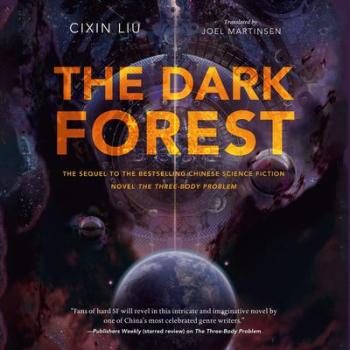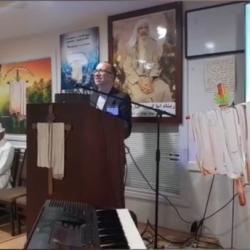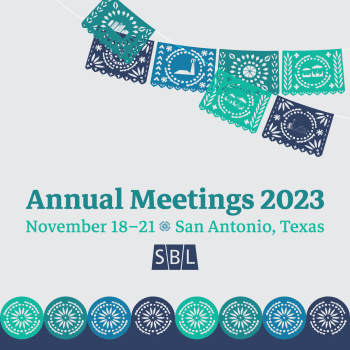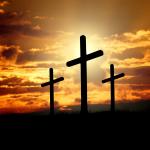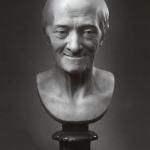Here is the title and abstract for my presentation in the upcoming Enoch Seminar Conference Online:
“Deity, Devil, Demiurge: The Shared Origins of Monotheism, the Problem of Evil, and ‘Gnosticism'”
James F. McGrath, Butler UniversityWhen it comes to the strands of ancient religion traditionally referred to as ‘Gnosticism’ and their most distinctive characteristics, the attempt to explain the existence of evil by positing an inferior creator is far less puzzling than that these traditions consistently identify the God of Judaism with that figure. Jews would appear to have strong reason not to do this, while non-Jews would have little reason to develop this specific focus. Solving this puzzle has the potential not only to help us understand the distinctive ‘gnostic’ solution to the problem of evil, but how and why it originated. In other words, this puzzle is crucial to cracking the mystery of the origins of ‘Gnosticism’ itself. This paper will explore the possibility that the monotheistic revolution in ancient Israel that ultimately creates the philosophical problem of evil as we know it today also gives rise to what become the Mandaean, Sethian, and other ‘gnostic’ traditions, as a response to that same innovation.
Here is the program for the Enoch Seminar conference, where I’ll be presenting on the above on July 2nd at noon.
Conference Schedule
10:00 – 11:30 AM Welcome and Opening Remarks [Gabriele Boccaccini; Lorenzo DiTommaso; Kelley Coblentz Bautch]Awards Ceremony
- “Enoch Seminar Life Achievement Award” to honor Paolo Sacchi, George Nickelsburg, Robert Kraft, Michael Knibb, Michael Stone, Devorah Dimant, and James Charlesworth, “in gratitude for their exceptional contribution to the field of Second Temple Jewish Studies and their generous service in the Enoch Seminar.”
- Presenters: Gabriele Boccaccini, Kelley Coblentz Bautch, Annette Reed, John Collins, Jonathan Ben-Dov, Lorenzo DiTommaso, Loren Stuckenbruck
12:00 – 1:30 PM If “apocalyptic is the mother of theology,” is the problem of evil the mother of “apocalyptic”? [Chair: Loren Stuckenbruck]
- Panelists: Ida Fröhlich, Albert Baumgarten, Emmanouela Grypeou
- Respondents: Matthew Goff, Matthias Hoffmann, Alexander Kulik
2:30 – 4:00 PM What was the nature and extent of Zoroastrian, Mesopotamian, Egyptian and Greco-Roman influences on the diverse notions of evil in Second Temple Judaism? [Chair: Lorenzo DiTommaso]
- Panelists: Jason Silverman, Harold Attridge, Lorenzo DiTommaso
- Respondents: Vicente Dobroruka, Pierluigi Piovanelli, David Hamidovic
DAY 2 (Tuesday, June 30, 2020)
9:30 AM Remarks from Day 1 [Gabriele Boccaccini; Lorenzo DiTommaso; Kelley Coblentz Bautch; Loren Stuckenbruck]
10:00 – 11:30 AM Which are the different ways in which evil was understood to enter into the world? Which historical or social circumstances prompted the preference from one or the other? Was it a case of a religious development in response to fundamental changes in the religious environment? In both cases, where and why? [Chair: Kelley Coblentz Bautch]
- Panelists: Carol Newsom, Loren Stuckenbruck, James VanderKam
- Respondents: Matthias Henze, Lester Grabbe, Anathea Portier-Young
12:00 – 1:30 PM How do non-apocalyptic texts of the period engage with the issue of the origin of evil and the theological problems it raises? Is there literary evidence, explicit or implicit, for contemporary debate regarding the existence of multiple explanations for the origin of evil in the world, particularly regarding the ways that each explanation addresses theological and existential issues? [Chair: Jason Zurawski]
- Panelists: Gerbern Oegema, Karina Martin Hogan, Greg Sterling
- Respondents: Hindy Najman, Benjamin Wright, Samuel Adams
2:30 – 4:00 PM Are evil human or superhuman figures a necessary and functional part of the earliest expressions of evil, or did they develop later? [Chair: Lorenzo DiTommaso]
- Panelists: Kelley Coblentz Bautch, Ryan Stokes, Archie Wright
- Respondents: Michael Morris, Lorenzo DiTommaso, Angela Kim Harkins
DAY 3 (Wednesday, July 1, 2020)
9:30 AM Remarks from Day 1 [Gabriele Boccaccini; Lorenzo DiTommaso; Kelley Coblentz Bautch; Jason Zurawski]
10:00 – 11:30 AM The origin of evil in the Dead Sea Scrolls [Chair: Loren Stuckenbruck]
- Panelists: John Collins, Jutta Leonhardt-Balzer, Miryam Brand
- Respondents: Timothy Lim, Elisa Uusimäki, Benjamin Wold
12:00 – 1:30 PM How is the problem of evil and its origin addressed in the Parables of Enoch and the Synoptics? [Chair: Gabriele Boccaccini]
- Panelists: Leslie Baynes, Gabriele Boccaccini, Daniel Boyarin
- Respondents: Jim Davila, Eric Noffke, Benjamin Reynolds
2:30 – 4:00 PM Do Paul and John stand in line with trajectories already evident in the Synoptics and Jewish apocalyptic literature of the era, or do they represent a new direction? Do we have evidence of divergent notions on the origin of evil in the early Jesus movement? [Chair: Benjamin Reynolds]
- Panelists: Paula Fredriksen, Adele Reinhartz, Edmondo Lupieri
- Respondents: Matthew Thiessen, Jutta Leonhart-Balzer, Craig Koester
DAY 4 (Thursday, July 2, 2020)
9:30 AM Remarks from Day 1 [Gabriele Boccaccini; Lorenzo DiTommaso; Loren Stuckenbruck; Benjamin Reynolds]
10:00 – 11:30 AM How is the problem of evil and its origin addressed in Rabbinic literature? Does it/they stand in line with trajectories already evident in the Jewish literature of the Second Temple Period, or does it represent a wholly new explanation? [Chair: Jason Zurawski]
- Panelists: Hector Patmore, Steven Fraade, Paul Mandel
- Respondents: Ishay Rosen-Zvi, Ronit Nikolsky, Mika Ahuvia
12:00 – 1:30 PM How is the problem of evil and its origin addressed in “gnostic” (Valentinian, Sethian, Mandaean) literature? Do they stand in line with trajectories already evident in the Second Temple Period, or represent a wholly new explanation? [Chair: Kelley Coblentz Bautch]
- Panelists: Jason BeDuhn, Alberto Camplani, James McGrath
- Respondents: April DeConick, Nicola Denzey-Lewis, Dylan Burns
2:30 – 4:00 PM Wrap-up Session
- 2:30pm-3:45pm – Panelists: Lorenzo DiTommaso, Kelley Coblentz Bautch, Loren Stuckenbruck, Miryam Brand, John Collins, Gabriele Boccaccini
- 3:45pm – Final remarks [Gabriele Boccaccini]: Twenty Years of Activities of Enoch Seminar: From Florence to the Cyberspace. In memory of Hanan Eshel, Shemaryahu Talmon, J. Harold Ellens, Klaus Koch, Michael Bonner, Geza Xeravits, and Larry W. Hurtado. Committed to building the new generation of scholars in Second Temple Judaism.
Also related:
Pete Enns recently wrote, “Jeremiah says that God never said what the Law of Moses said he said. That is because the Pentateuch that we can pick up and read anytime we want do did not yet exist in Jeremiah’s day. And that’s at least something worth thinking about.”
Margaret Barker mentions the spread of Israelite tradition in the direction of China that also preserved pre-exilic elements. See also the Kaifeng Torah scroll featured recently on the British Library blog.
Also relevant to Gnosticism, albeit in a later period:
Charting the Mid-Second Century: Apostolic Christians, Gnostic, Rabbinic Jews…
I must also mention the sad news that Kurt Rudoph has died:
In memoriam: Kurt Rudolph (1929-2020)
And since Gnosticism gets a mention in this…








